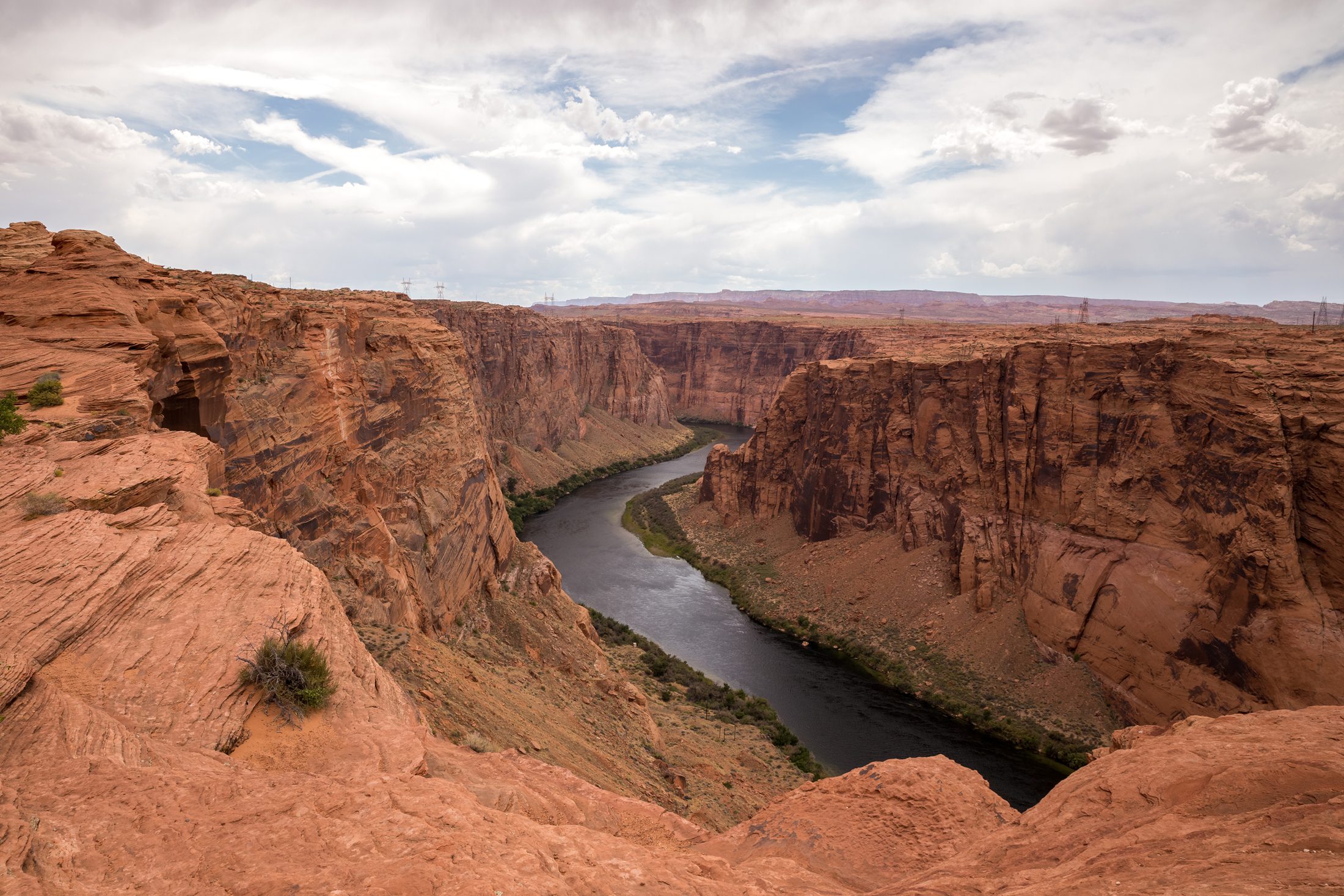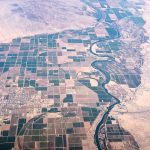- Seven basin states missed the November 11 federal deadline.
- Interior Department warns it may impose its own plan.
- Arizona and California leaders express frustration with stalled talks.
- Negotiators agree to keep meeting as tensions rise between Upper and Lower Basins.
Wednesday, November 12, 2025 — After two years of tense negotiations, the seven Colorado River Basin states failed to reach an agreement by the federally imposed November 11, 2025, deadline. According to reporting by Reagan Priest of the Arizona Capitol Times , the U.S. Department of the Interior had given the states until Veterans Day to decide how to share the river’s water beyond 2026, when the current management rules expire. Despite a last-minute meeting in Arizona, the day ended without a deal.
, the U.S. Department of the Interior had given the states until Veterans Day to decide how to share the river’s water beyond 2026, when the current management rules expire. Despite a last-minute meeting in Arizona, the day ended without a deal.
A joint statement released by the Department of the Interior and the seven states acknowledged that while no agreement was finalized, “collective progress has been made that warrants continued efforts to define and approve details for a finalized agreement.” The statement emphasized a shared goal of “long-term sustainability and resilience” for a river system that provides water to 40 million people.
As Ben Winslow of FOX 13 News (Salt Lake City) reported, negotiators agreed to keep talking past the deadline, signaling a desire to avoid federal intervention. Utah Governor Spencer Cox said in a statement that the states “remain committed to a state-led path” and would continue to work toward “a framework that protects water users and the system as a whole.”
reported, negotiators agreed to keep talking past the deadline, signaling a desire to avoid federal intervention. Utah Governor Spencer Cox said in a statement that the states “remain committed to a state-led path” and would continue to work toward “a framework that protects water users and the system as a whole.”
Arizona’s Bipartisan Plea to Washington.
In Arizona, leaders across party lines have urged swift federal action. Governor Katie Hobbs joined both Republican and Democratic legislative leaders in signing a letter to Interior Secretary Doug Burgum, calling for him to end the stalemate. As Priest reported , the letter stressed that Arizona’s Colorado River allocation “is important to not only Arizona and its citizens, but also to the nation’s economic growth and independence.”
, the letter stressed that Arizona’s Colorado River allocation “is important to not only Arizona and its citizens, but also to the nation’s economic growth and independence.”
Hobbs told reporters that Arizona has already made significant water-use reductions, while accusing the Upper Basin states—Colorado, Utah, Wyoming, and New Mexico—of refusing to commit to meaningful cuts. “The Lower Basin states have come to the table with offer after offer,” Hobbs said, noting that Arizona has taken the brunt of those sacrifices.
Arizona lawmakers earlier this year allocated $1.5 million to the Department of Water Resources in preparation for potential litigation should the federal government impose a plan unfavorable to the state. Hobbs is expected to meet with Secretary Burgum next week to discuss possible next steps.
California’s Stakes and the Broader Basin Divide.
California’s dependence on the Colorado River raises the stakes for the entire negotiation process. Rachel Becker of CalMatters  reported that the state draws more water from the river than any other and receives more than half of the electricity produced at Hoover Dam. The Imperial Valley, which relies heavily on Colorado River water, sustains half a million acres of farmland producing vegetables and alfalfa for the nation.
reported that the state draws more water from the river than any other and receives more than half of the electricity produced at Hoover Dam. The Imperial Valley, which relies heavily on Colorado River water, sustains half a million acres of farmland producing vegetables and alfalfa for the nation.
J.B. Hamby, chair of the Colorado River Board of California, told CalMatters that “we’ve been in a holding pattern, and we need to land this plane.” Yet the state’s long-held senior water rights have insulated it from past shortages, leading to questions about how much California might be required to give up under a new agreement.
that “we’ve been in a holding pattern, and we need to land this plane.” Yet the state’s long-held senior water rights have insulated it from past shortages, leading to questions about how much California might be required to give up under a new agreement.
Experts told Becker that federal deadlines have historically motivated deals on the river—but enforcement has often been inconsistent. Elizabeth Koebele, a political science professor at the University of Nevada, Reno, noted that as climate change tightens water supplies, “you’re cutting a smaller pie for more people,” making cooperation increasingly difficult.
The Federal Role and What Comes Next.
The Colorado River Compact of 1922 and subsequent agreements have long divided the basin into Upper and Lower regions, each with distinct obligations. The current rules—adopted in 2007—will expire in 2026. Acting Bureau of Reclamation chief Scott Cameron previously said that, absent a new plan, Secretary Burgum is prepared to exercise his authority as “water master” of the Lower Basin, potentially declaring shortages or ordering cutbacks.
Shannon Mullane of The Colorado Sun  reported that the Interior Department plans to release a draft management proposal in December, which will then be opened for public comment. The agency aims to finalize a decision by mid-2026, but that could change if the states submit a shared framework by early next year.
reported that the Interior Department plans to release a draft management proposal in December, which will then be opened for public comment. The agency aims to finalize a decision by mid-2026, but that could change if the states submit a shared framework by early next year.
If they fail to do so, the federal government could impose its own plan, and legal challenges are expected to follow. Water law experts told The Colorado Sun that court battles could drag on for years, leaving water allocations—and the communities that depend on them—in limbo.
that court battles could drag on for years, leaving water allocations—and the communities that depend on them—in limbo.
A River Under Strain.
The Colorado River’s challenges extend beyond politics. CalMatters quoted climate researcher Brad Udall of Colorado State University’s Colorado Water Institute, who described the situation at Lakes Mead and Powell as “beyond awful.” Combined, the two reservoirs—critical to both the Upper and Lower Basins—are only about one-third full.
quoted climate researcher Brad Udall of Colorado State University’s Colorado Water Institute, who described the situation at Lakes Mead and Powell as “beyond awful.” Combined, the two reservoirs—critical to both the Upper and Lower Basins—are only about one-third full.
Udall warned that without coordinated conservation, both reservoirs could “enter uncharted territory” by the end of 2026. Federal officials agree that the drought-driven crisis poses “real risks” to every basin state, regardless of prior water rights or allocations.
What’s Ahead.
While the missed deadline underscores how difficult it has become to find common ground, negotiators from all seven states insist they are not walking away. “The Basin States remain committed to collaboration grounded in the best available science,” said Colorado’s representative Becky Mitchell . For now, the next steps include continued meetings, potential federal involvement, and a looming draft plan that could reshape the river’s future.
. For now, the next steps include continued meetings, potential federal involvement, and a looming draft plan that could reshape the river’s future.
What is clear, as Priest, Becker, Winslow, and Mullane all reported, is that the Colorado River’s fate remains uncertain—and time is running short to decide how one of the West’s most vital water sources will be shared in a hotter, drier future.
FAQ
Q: Which states are part of the Colorado River Basin?
A: The seven basin states are Arizona, California, Nevada, Colorado, Utah, New Mexico, and Wyoming.
Q: What was the November 11, 2025, deadline about?
A: The U.S. Department of the Interior asked the states to reach a preliminary agreement on post-2026 management of the river. That date passed without a deal.
Q: What happens now that there is no agreement?
A: The federal government plans to release its own draft proposal in December 2025. States can continue negotiating, but if no joint plan is submitted, federal rules may be imposed.
Q: Why are Upper and Lower Basin states at odds?
A: Lower Basin states such as Arizona, California, and Nevada argue they have already made substantial cuts, while Upper Basin states—Colorado, Utah, Wyoming, and New Mexico—say they are limited by natural water availability and oppose mandatory reductions.
Q: Could this end up in court?
A: Yes. Arizona has already set aside funds for possible litigation if a federally imposed plan reduces its allocation.
Q: How serious is the drought situation?
A: Scientists report that Lakes Mead and Powell are roughly one-third full. Continued drought conditions and climate pressures could push both into record-low territory by 2026.




